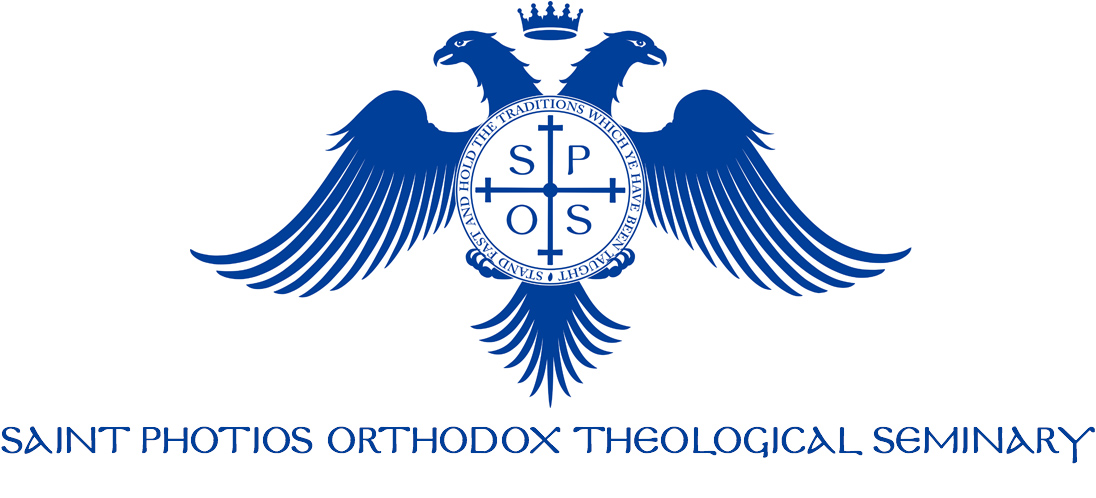Communiqué Concerning Resolutions of the Holy Synod
- Details
- Created on Sunday, 07 March 2021 01:34
Church of the Genuine Orthodox Christians of Greece
Holy Synod
Communiqué Concerning Resolutions of the Holy Synod
February 5/18, 2021
On Thursday, February 5/18, 2021, the Holy Synod of the Church of the Genuine Orthodox Christians of Greece convened for its sixth regular session, under the Presidency of His Beatitude, Archbishop Kallinikos of Athens and All Greece and with the participation of twelve other Hierarchs from Greece and abroad by way of videoconferencing, and discussed and reached decisions on the following topics:
1. The Synod was informed about the ecclesiastical situation in Italy, with regard to developments in the affairs of the Holy Diocese of Luni.
2. The Synod was informed about developments in Serbia, with regard to the presence there of Genuine Orthodoxy and growing impediments.
3. The Synod discussed a petition for reception from someone presenting himself as a clergyman from the State Church; the petition was rejected.
4. There was discussion of the situation created by the coronavirus and specifically of the new vaccines. After studying the facts, the Hierarchs came to the following conclusions:
a) The abnormal situation generated by this pestilence should not become an occasion for the permanent or long-term curtailment of the basic freedoms of citizens by the government or for the promotion of schemes for globalization, nor should compulsory medical procedures be imposed on citizens without their free consent. Recently, the Council of Europe (2361/2021) ruled that vaccination is not obligatory and that there should be no discrimination against anyone not wishing to be vaccinated.
b) A plethora of conflicting information concerning vaccines against the coronavirus is circulating on the Internet, and even among experts in the scientific community. Much of this information has been debunked as false or dubious (at least with regard to the two principal vaccines in use in Greece). The matter does not appear to have any immediate spiritual or ecclesiastical dimensions, although there are objections that also pose bioethical issues at an early or experimental phase in the preparation of vaccines. The most serious objections pertain to the safety of vaccines, that is, whether their trial periods have been sufficient and whether mRNA technology is safe in all respects. Experts on these issues express differing views, with many of them declaring in favor of the safety of the vaccines, although no one can offer absolute assurance concerning their long-term consequences. However, a single Church body, such as the Holy Synod, is not competent to pronounce on the safety of new pharmaceutical preparations or even experimental vaccines. Every citizen is called to make his own decision, after consulting with physicians whom he trusts and who are familiar with the state of his health. Spiritual Fathers must not provide concrete encouragements or discouragements regarding vaccination to the faithful who ask them about it, beyond general information, since they will then bear responsibility either if the faithful lose their lives or put them at risk from vaccination (on account of serious side effects) or from non-vaccination (on account of disease with serious consequences resulting from the virus). This issue does not cease being chiefly and basically a medical one.
c) We call upon our faithful to continue their fervent prayers for the cessation of this plague, for the healing of the infirm, and for the strengthening of doctors and nurses in their difficult work and especially that they abide in peace and love among themselves, not judging one another over their attitudes towards medical issues and not falling into the trap of new divisions and disagreements on these matters, but being concerned first and foremost with the salvation of their souls.
5. The Holy Synod dealt with other ongoing issues.
From the Chancery
Orthodox Awareness
Ecumenical Dialogues Intensified
At the beginning of September (n.s.) Bartholomew called together a “Synaxis of the Patriarchates and the Autocephalous Church of Cyprus" at the Phanar in order to coordinate their efforts for the First Ecumenistic Council which they plan to convene shortly. At it, they will most certainly have to deal with a conflict with the Patriarchate of Moscow concerning primacy, but also they will proclaim the heresy of Ecumenism with an alleged synodal decision of Ecumenical (or rather Ecumenistic) force. Read more...
Missions
Saint Matthew the Evangelist, Jonesboro, Arkansas
Jonesboro is a town located near the Eastern border of Arkansas, with a population of approximately 60,000. From a human standpoint, it’s not the most likely candidate for a traditional Orthodox mission, but for an Orthodox Christian who orders his priorities around Christ and His Church, it makes perfect sense. Read more...
Youth
2025 Youth Conference
Please join us for the 2025 youth conference in Toronto, Ontario, Canada! To learn more, visit the conference website.
Ask A Priest
Is the GOC Insular?
Q. In considering becoming part of the GOC in America, I am getting warnings from various circles that the attitude of GOC people is that of being “walled off,” “arrogant,” “judgmental,” and “in your face” toward those not in the Genuine Orthodox Church, with accusations such as “World Orthodox” priests are “not even Christians” and the like. Could you give me your personal, realistic assessment of this dynamic and possibly refer me to an official statement on how GOC members should and do relate to and communicate with those in “World Orthodoxy”? Read more...





